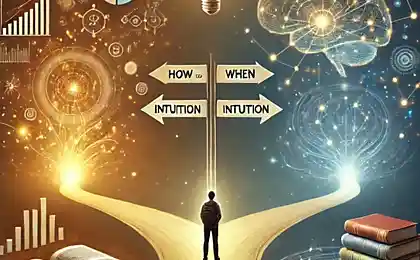745
“Error player” or why you can't trust intuition
Suppose you play roulette and the drum a few times you will get “black”. Probably, it would be fair to assume that with each time probability of rolling a “red” — is increasing. If nine times, I've gotten “black”, the tenth is likely to be just “red”. This reasoning is quite common and at first glance it seems quite logical. However, in reality it is not. Probability theory says that the probability each time is the same and is 1/2 or 50/50 percent.
Eighty two million one hundred fifty seven thousand one hundred eighty eight
At the beginning of the 20th century, in one of the casino Monte Carlo in Monaco, a curious incident happened. On the roulette wheel several times in a row fell black. Each time wishing to bet on the opposite color is “red” — became more and more. However, “black” was dropped 26 times the dismay of all present players and their huge loss. Discouraged players questioned the fairness of the casino, considering what is happening in violation of probability theory, and therefore impossible without a special trick.
Later this phenomenon was studied and included in psychological science called “the gambler's fallacy” or “negative effect of novelty” (negative recency effect), as an example of cognitive distortion. The thing in relation to the life experiences and use. It is believed that in real life most phenomena are interrelated. A variety of events, perceived as random, tend to “return to the mean.” This leads to cognitive distortions of perception of objectivity and forces us to assume that the probability of a future event depends on the previous one, even if in fact it is not.
Even more curious is the fact that the “gamblers fallacy” can occur in the most unexpected situations and even those people who consider themselves versed in mathematics in General and statistics in particular. It reflects two aspects of human cognitive perception: unconscious motivation to seek order and patterns in everything, with what we have to deal with, even if it is a random process; and ignoring logic, preferring intuition and taking her self-evidence, which does not require the calculation and analysis.published
P. S. And remember, just changing your mind — together we change the world! ©
Join us in Facebook and Vkontakte, and we're Classmates
Source: psifactor.info/2015/04/oshibka-igroka-ili-pochemu-nelzya-verit-intuitsii/
Eighty two million one hundred fifty seven thousand one hundred eighty eight
At the beginning of the 20th century, in one of the casino Monte Carlo in Monaco, a curious incident happened. On the roulette wheel several times in a row fell black. Each time wishing to bet on the opposite color is “red” — became more and more. However, “black” was dropped 26 times the dismay of all present players and their huge loss. Discouraged players questioned the fairness of the casino, considering what is happening in violation of probability theory, and therefore impossible without a special trick.
Later this phenomenon was studied and included in psychological science called “the gambler's fallacy” or “negative effect of novelty” (negative recency effect), as an example of cognitive distortion. The thing in relation to the life experiences and use. It is believed that in real life most phenomena are interrelated. A variety of events, perceived as random, tend to “return to the mean.” This leads to cognitive distortions of perception of objectivity and forces us to assume that the probability of a future event depends on the previous one, even if in fact it is not.
Even more curious is the fact that the “gamblers fallacy” can occur in the most unexpected situations and even those people who consider themselves versed in mathematics in General and statistics in particular. It reflects two aspects of human cognitive perception: unconscious motivation to seek order and patterns in everything, with what we have to deal with, even if it is a random process; and ignoring logic, preferring intuition and taking her self-evidence, which does not require the calculation and analysis.published
P. S. And remember, just changing your mind — together we change the world! ©
Join us in Facebook and Vkontakte, and we're Classmates
Source: psifactor.info/2015/04/oshibka-igroka-ili-pochemu-nelzya-verit-intuitsii/
























